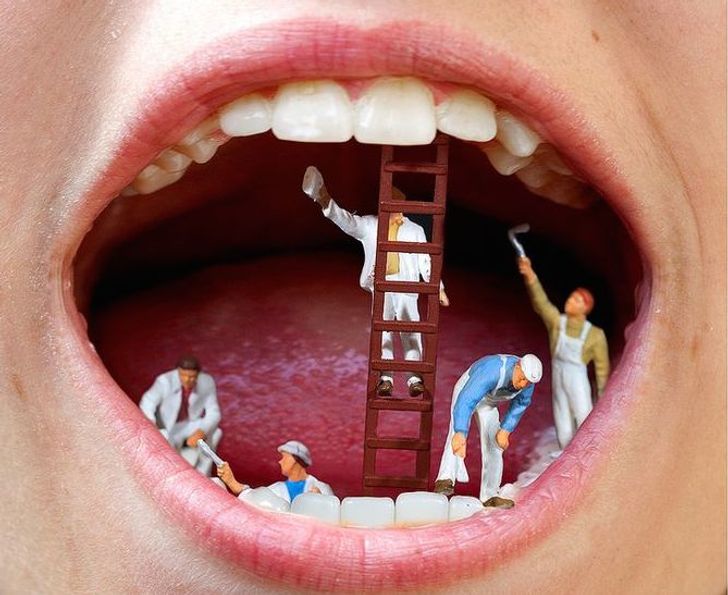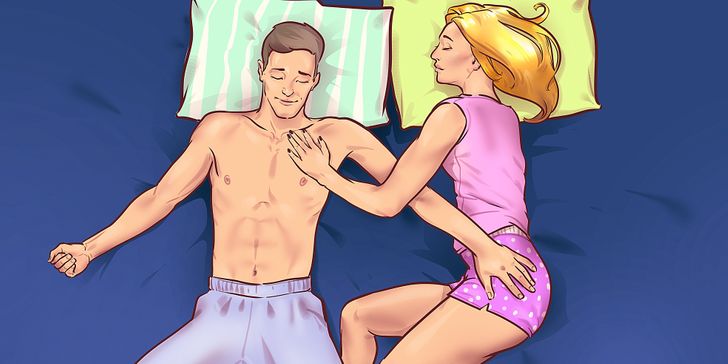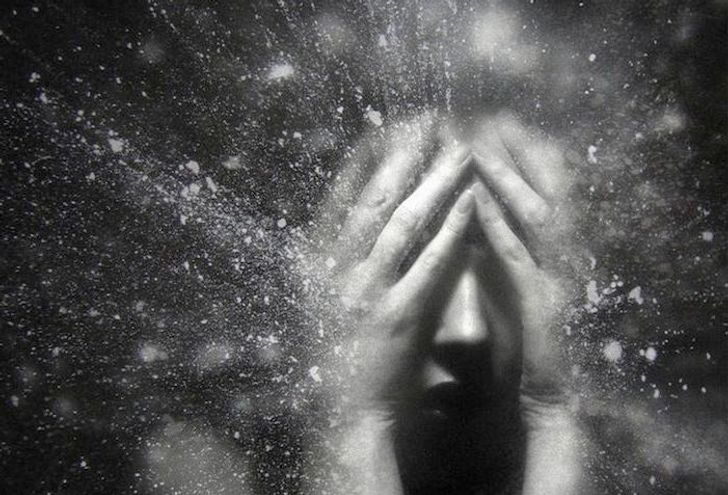9 Fascinating Things That Happen to Your Body While You Sleep
We decided to investigate this fascinating topic further. Here are the nine most curious things that happen to your body when you fall into the arms of Morpheus and let your conscious mind turn off for a few hours.
1. Your muscles are paralyzed

When you enter REM (Rapid Eye Movement) sleep, which is the deepest sleep of all, the muscles of your limbs are paralyzed completely and it’s temporarily impossible to move.
There is a sleep disorder in which this paralysis is maintained for a few seconds or minutes after waking. This frightening sense of paralysis is experienced by people with narcolepsy when they open their eyes after waking up.
2. Your eyes move at full speed

All phases of sleep serve a specific purpose in keeping your body and brain healthy and relaxed. There are five stages of sleep; each is deeper than the previous one, and when we pass through all five phases, the cycle starts over again. The last one (REM) is the most active and it starts about 60 or 90 minutes after you fall asleep. At this stage your eyes move at full speed back and forward, without you being aware of it, because your mind is focused on what you’re dreaming.
3. A growth hormone is released

HGH hormone, known as human growth hormone, is responsible for allowing your bones, muscles and tissue to regenerate. When you sleep, the production of this substance is activated all over your body. It contributes to the healing of wounds and cell renewal. When we’re young, this hormone promotes growth and has many other effects on the body. For this reason, one can say that we grow taller when we sleep.
4. Your throat narrows

When you sleep, the muscles that hold your throat open when you’re awake relax, and the size of your throat decreases. This is one of the causes of deep snoring. Although there are other contributing factors, such as nasal obstruction, the tightening of the throat has a lot to do with the annoying noises that some people make when they sleep.
5. You grind/gnash your teeth

This phenomenon is called bruxism. It doesn’t happen to everyone, but some people may wake up with strong jaw pain after grinding their teeth at night. Bruxism can have a morphological origin that occurs as a result of a misalignment in the jaw. It can also be psychological – it’s a way to release emotional tension and stress accumulated during the day. However, studies have not yet managed to identify why some people never experience it, while others end up with cracked teeth and sore jaws.
6. You experience spontaneous sexual arousal

Both men and women experience sexual arousal during sleep. This phenomenon is due to the peak brain activity during the rapid eye movement phase of sleep, which means your brain needs more oxygen, and therefore, a faster flow of blood. Increase in the latter affects every organ of your body, including the most intimate ones, resulting in the activation of sexual hormones.
7. Your brain releases accumulated information and makes up stories

The way our dreams are formed still remains a scientific mystery. Today we know that our brain constructs dreamscapes from memories present in our daily lives and our deep subconscious material. Thus, recent experiences combine with the information we have stored for years: memories, traumas, emotions and feelings, to create mysterious and sometimes absurd dreams. However, it’s still not possible to determine why our mind travels to certain places at night, or why it chooses specific memories, colors, voices, scenes or people. Despite the great advances of science, dreams remains a big puzzle that has yet to be solved.
8. You can hear sudden explosions

Exploding head syndrome is a phenomenon that is rare, but it can occur. If it ever happens to you, you’ll feel like a loud explosion made you wake up, and you may experience high levels of fear and distress, but in reality nothing in the outside world has happened. Those who suffer from this syndrome feel that their head has ‘exploded’ or think they heard a loud sound, like a gunshot. It causes no physical pain, but can have serious psychological implications.
9. Your brain restores and detoxifies itself

Researchers at the University of Rochester found that while you sleep, your brain flushes out the waste that builds up during the day. The mechanism that is activated when we are sleeping is called the glymphatic system, and when it turns on it allows your brain to discard useless information, and to accumulate the stuff that it considers vital and renew their connections.